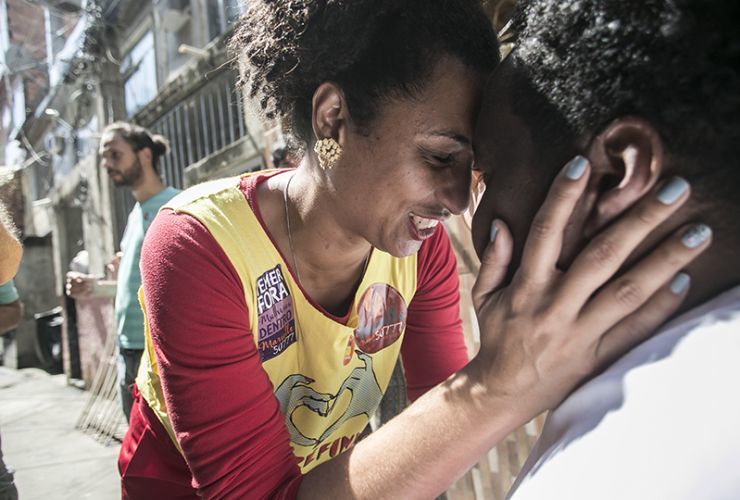
In the Boston Review, Gianpaolo Baiocchi and Marcelo K. Silva analyze the worrisome state of Brazilian democracy in the wake of the apparent assassination of Marielle Franco, a leftists city councilor in Rio de Janeiro who was a staunch advocate of the poor. Baiocchi and Silva recall the years of government corruption and abuse of power that brought Brazil to its current crisis, and argue that the greatest threat to democracy in the country is the increasing popularity of authoritarian military rule. Read an excerpt from the piece below, or the full text here.
Despite its unique horror, Franco’s murder can best be understood as the latest episode in the political crisis that has engulfed Brazil since the months before the 2016 impeachment of President Dilma Rousseff, a member of the center-left Workers’ Party. The appeal of far-right politics and a general distrust of democratic institutions is rising in worrying ways as the country faces its next scheduled elections in November. One of the fastest-rising candidates, riding the wave of this revanchism, is the ultra-right Jair Bolsonaro, “Brazil’s Trump,” an avowed fan of Brazil’s 1964–85 military junta who regularly serves as public apologist for police violence and torture, and who last year was censured in Congress for telling a leftist congresswoman that she was “too ugly to be raped.”
Every time there is political upheaval in Brazil, there is some talk of military intervention and a return to dictatorship, but it is usually limited to fringe figures and shadowy military generals. This time, though, things are different. From Facebook to talk radio, nostalgia for authoritarianism—and fret about the excesses of democracy—have become prevalent, and increasingly figures in the speeches of politicians such as Bolsonaro. Open expressions of homophobia, sexism, and racism are continuing to gain traction in response to the perceived overreach of political correctness under the previous dozen years of Workers’ Party rule. More broadly, there is a widely-held belief that democratic institutions have failed; that the courts are partial and political instruments; and that political parties are uniformly corrupt.
Image of Marielle Franco via Boston Review.